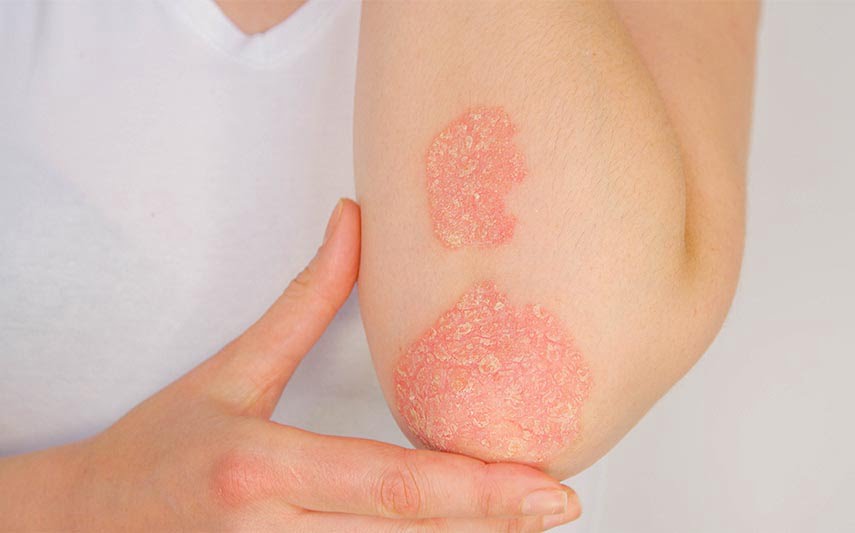Psoriasis: What You Need to Know

What is Psoriasis?
Psoriasis is a skin disorder that causes skin cells to multiply up to 10 times faster than normal. This makes the skin build up into bumpy red patches covered with white scales. They can grow anywhere, but most appear on the scalp, elbows, knees, and lower back. Psoriasis is not a skin condition that can be passed from person to person.
Psoriasis is caused by the immune system mistakenly attacking healthy skin cells. If you’re sick or battling an infection, your immune system will go into overdrive to fight the infection. This might start another psoriasis flare-up.
Psoriasis can affect almost anyone. Most people with psoriasis go through “cycles” of symptoms. The condition may cause severe symptoms for a few days or weeks, and then the symptoms may clear up and be almost unnoticeable. Then, in a few weeks or if made worse by a common psoriasis trigger, the condition may flare up again. Sometimes, symptoms of psoriasis disappear completely.
How is Psoriasis Treated?
Thankfully, there are a number of treatments available for those diagnosed with psoriasis.
Topical Psoriasis Treatments
Typically, the first treatment options are topical treatments, which are creams and ointments applied directly to the skin that can be helpful for reducing mild to moderate psoriasis.
Topical psoriasis treatments include:
• topical corticosteroids
• topical retinoids
• anthralin
• vitamin D analogues
• salicylic acid
• moisturizer
Oral or Injected Psoriasis Medications
People with moderate to severe psoriasis, and those who haven’t responded well to other treatment types, may need to use oral or injected medications. Many of these medications have severe side effects. Doctors usually prescribe them for short periods of time.
These medications include:
• methotrexate
• cyclosporine (Sandimmune)
• biologics
• retinoids
Light Therapy for Psoriasis
Light Therapy is another treatment option for psoriasis. This psoriasis treatment uses ultraviolet (UV) or natural light. Sunlight kills the overactive white blood cells that are attacking healthy skin cells and causing the rapid cell growth. Both UVA and UVB light may be helpful in reducing symptoms of mild to moderate psoriasis.
Most people with moderate to severe psoriasis will benefit from a combination of treatments. This type of therapy uses more than one of the treatment types to reduce symptoms. Some people may use the same treatment their entire lives. Others may need to change treatments occasionally if their skin stops responding to what they’re using.
Psoriasis Treatment in Wilmington, NC
If you think you may have psoriasis and are looking for treatment options, set up an appointment with us today! Dr. Rosalyn George has been involved as a primary investigator on over 50 clinical research trials across clinical dermatology and cosmetic-related indications.
Clinical trial candidates often receive treatments at no cost during these relevant studies. We are currently recruiting patients for a psoriasis study now! Call or email us today if you would like to be considered for studies currently in the recruitment process or future trials.
*healthline.com (reference)
